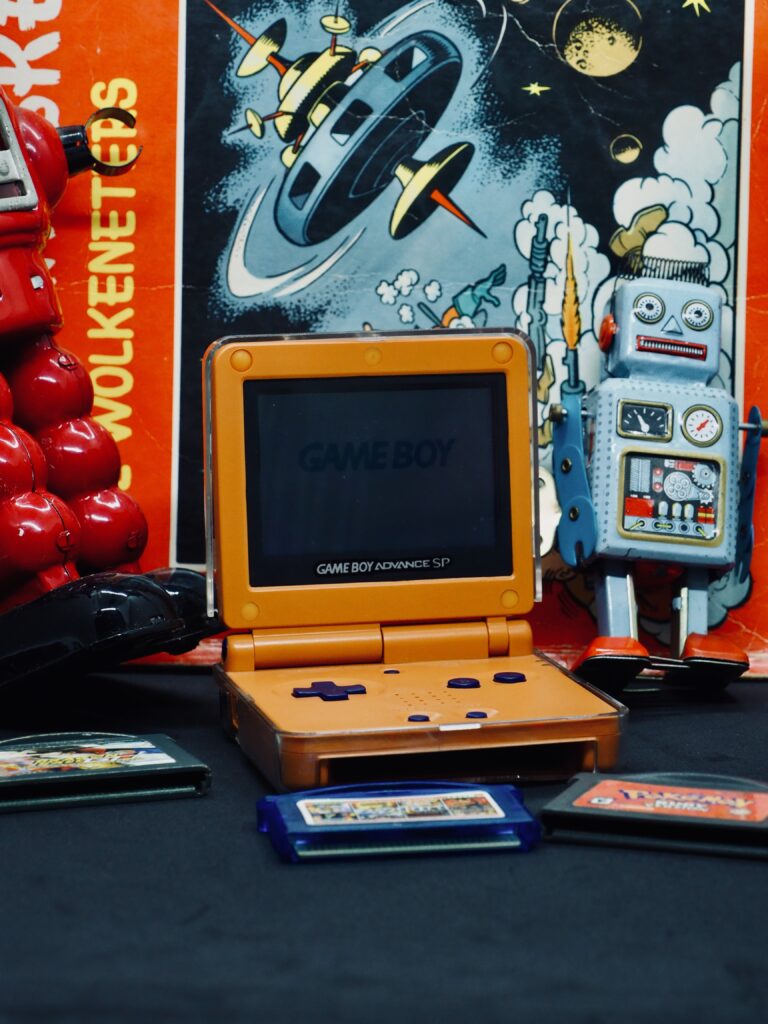What Are Gaming Loot Boxes? An Ultimate Guide
Introduction: The Intriguing World of Gaming Loot Boxes
What Are Gaming Loot Boxes? A Question Worth Exploring
You love playing video games, but have you ever paused your gaming session to ponder the question, “What are gaming loot boxes?” If this question has crossed your mind, or even if it hasn’t, you’re in the right place to have it thoroughly answered.
A Guide for All Gamers
Whether you’re a seasoned gamer who’s encountered loot boxes in various games or someone who’s just getting started in the expansive world of video gaming, this article aims to demystify this often talked-about but rarely explained feature. Understanding what gaming loot boxes are can make a difference in how you approach your favorite games.
Unveiling the Secrets
In the following sections, we will peel back the layers of these virtual treasure chests. We’ll delve into their origins, their purpose, and the controversies that often surround them. Are they a harmless enhancement to the gaming experience, or a form of gambling in disguise?
Why it Matters
Understanding the ins and outs of gaming loot boxes is more than just gaming trivia. It can impact your decisions within games, your spending, and even the way you engage with online gaming communities. So, read on to become an informed gamer as we explore the captivating world of gaming loot boxes.
What Are Gaming Loot Boxes?

Definition of Gaming Loot Boxes: A Closer Look
What exactly are they? Gaming loot boxes are essentially digital treasure chests. They contain a randomized selection of virtual items, which could range from cosmetic character skins to in-game weapons and power-ups.
How to Acquire Them
You can often buy loot boxes using real-world currency or in-game currency that you’ve either earned or purchased. They’ve become a common feature in a variety of game genres, from shooters to sports games, and are accessible to gamers on almost every platform, be it console, PC, or mobile.
History of Gaming Loot Boxes: Where it All Began
The Asian Influence: Digging Deeper
Roots in Mobile Gaming
The “gacha” system originated in Asian mobile games as a monetization strategy. While the games themselves were often free to play, they included microtransactions in the form of gacha capsules. These capsules, similar to vending machine capsules, held a random item that could be beneficial to the player.
Cultural Acceptance
In Asia, especially in countries like Japan, the concept of “gacha” was not new; it was culturally rooted in the form of capsule-toy vending machines. The digital adaptation was quickly accepted and even became an expectation among players. It played a significant role in normalizing the spending of real money for virtual items, opening the door for similar mechanics to be integrated into other types of games.
Western Adoption: The Trend Crosses Oceans
Early Adopters
The first Western games to adopt the loot box model were primarily multiplayer online games. “Team Fortress 2” by Valve was among the pioneers, introducing its loot box system in 2010. This was closely followed by Blizzard’s “Overwatch” in 2016. Both titles were immensely popular and were willing to experiment with this new form of in-game monetization.
Mainstreaming the Mechanic
The incorporation of loot boxes in these high-profile titles contributed to their mainstream acceptance. Gamers, intrigued by the concept, were generally willing to spend extra on these loot boxes for a chance at exclusive or rare items. This led to a ripple effect, inspiring a slew of other Western game developers to include loot boxes as a monetization strategy in their own titles.
Player Reception and Scrutiny
While the financial advantages for game developers were apparent, the reception among Western audiences was mixed. Unlike in Asia, where “gacha” was culturally rooted, Western gamers had mixed feelings about spending real-world money on randomized virtual items. The practice also drew scrutiny from various sectors, leading to the debates and regulations we see today.
By understanding the Asian origins and the Western adoption of the loot box system, it’s easier to grasp why this controversial feature has become so widespread. Each market offered a unique perspective that shaped the evolution and the impact of loot boxes in the gaming world.
Psychological Effects of Gaming Loot Boxes
The use of loot boxes in gaming raises important questions about their impact on player psychology. The uncertainty and reward mechanisms inherent in loot box mechanics can trigger certain psychological responses, such as the release of dopamine, which contributes to feelings of pleasure and motivation. This can foster addictive behaviors, as players seek to replicate the pleasurable experience associated with opening loot boxes and obtaining desirable items.
Moreover, the potential for social comparison also plays a role in the psychological effects of loot boxes. When some players obtain rare and coveted items through loot boxes, it can create a sense of envy and pressure among others to make further purchases in pursuit of similar rewards. This can lead to a continuous cycle of spending and reinforce the belief that one’s in-game success is contingent upon acquiring these coveted items.
The mechanics of loot boxes are designed to evoke specific emotional responses. The anticipation and excitement surrounding the opening of a loot box can be compared to the feelings associated with gambling. This is one of the key reasons why the debate on whether loot boxes constitute gambling is ongoing.
Should You Buy Loot Boxes?
Given the controversies surrounding loot boxes, is it worth buying them? This largely depends on your gaming goals and your understanding of the odds. Knowing the likelihood of obtaining certain items can help you make an informed decision. For casual gamers, the excitement of opening a loot box may be reward enough. However, for competitive players, it might be worth weighing the value of potential loot against the cost.
Regulatory Actions & Future Predictions
As the debate on what are gaming loot boxes and their similarity to gambling intensifies, it’s likely that more countries will examine and possibly regulate their use. Future game designs may also evolve to include less controversial means of in-game monetization.
Gambling Similarities
Loot boxes have not been without their controversies. Critics often point out that the random nature of the items you can get from a loot box closely mimics gambling mechanics. When real money is involved, the lines can blur, leading several countries to take action.
Legal Actions
Countries like Belgium and the Netherlands have taken a strong stance, classifying loot boxes as gambling and making them illegal in some cases. These decisions have pushed game developers to reconsider how loot boxes function, especially in games that are accessible to children.
Economic Impact: A Profitable Affair
A Lucrative Business Model
Despite the debates surrounding their ethics, loot boxes have been incredibly profitable for the gaming industry. The element of surprise and the chase for rare items encourage repeated purchases, effectively boosting in-game spending.
The Financial Data
Some reports suggest that loot boxes can account for a significant chunk of a game’s overall revenue. Players willingly spend on these virtual boxes, driving profits and allowing developers to continue creating new content for games.
By unpacking the complex world of gaming loot boxes, one can see they’re not just a simple add-on but a feature with historical context, ethical dilemmas, and significant economic impact.
Comparison of Loot Boxes in Different Games
Different games approach loot boxes in distinct ways, which can impact their perceived value and desirability. Some games offer more transparency by disclosing the odds of obtaining specific items from loot boxes, allowing players to make more informed purchasing decisions. Others provide additional avenues for acquiring loot box items through in-game progression, reducing the pressure to spend real or in-game currency.
Furthermore, the contents of loot boxes can vary significantly from game to game, with some focusing on cosmetic items that have no impact on gameplay, while others include items that offer a clear advantage or affect gameplay mechanics. This distinction can influence players’ willingness to engage with loot boxes and the perceived fairness of their implementation.
What Are Gaming Loot Boxes: Examples
Fortnite: “V-Bucks” and “Llama Pinatas”
In Fortnite, the currency used to purchase loot boxes is known as V-Bucks. Players can use V-Bucks to buy “Llama Pinatas,” which are the game’s version of loot boxes. These pinatas contain a random assortment of items ranging from crafting materials to unique skins. Players break open the Llama Pinatas to discover what’s inside, adding a layer of excitement and anticipation to the process.
Overwatch: “Loot Boxes”
Overwatch offers loot boxes that can be earned through gameplay or purchased with real money. These loot boxes contain a variety of items including character skins, voice lines, and emotes. The game does ensure that each loot box will contain at least one item of “rare” quality or better, making each opening an exciting event for players.
Apex Legends: “Apex Packs”
Apex Legends features loot boxes known as Apex Packs. These packs contain three random items that can range from character skins to voice lines. Apex Packs can be earned through gameplay progression or bought with real currency. The game also has a “bad luck protection,” ensuring that players get a Legendary item for every 30 packs they open.
FIFA 21: “FUT Packs”
In FIFA 21, the loot box system comes in the form of FIFA Ultimate Team (FUT) packs. These packs contain random players and items that can be added to your virtual team. The randomness and the potential high value of certain cards make opening FUT packs an exhilarating experience for many players. However, this system has also been criticized for its gambling-like mechanics.
Genshin Impact: “Wishes”
In the popular mobile and console game Genshin Impact, the loot box system is known as “Wishes.” Players can use a special currency to make a Wish, granting them a random item or character. The game employs a “pity system,” ensuring that after a certain number of Wishes, the player will receive a high-rarity item or character. This system has made Genshin Impact incredibly lucrative, but it’s also been criticized for encouraging excessive spending.
Each of these games employs its own unique take on the loot box system, tailoring the mechanics to fit the game’s overall design and objectives. However, they all share the same underlying principle: offering randomized rewards to engage players and encourage in-game spending.
Loot Boxes Targeting Children
The issue of loot boxes becomes even more complex when it comes to games targeted at children. Games aimed at younger audiences often incorporate bright, eye-catching graphics and simple mechanics, making loot boxes in these settings particularly appealing. Games like “Roblox” and even mobile games aimed at kids feature in-app purchases that closely resemble the loot box model. These are designed to be enticing, often requiring only a tap to purchase, making it easier for children to engage without fully understanding the financial implications.
Moreover, the concept of “surprise” or “mystery” items appeals directly to a child’s sense of curiosity and wonder, effectively encouraging them to make more purchases. This has led to concern among parents and regulators alike about the ethicality of offering such systems in games designed for children. It raises questions about whether these practices exploit a child’s lack of impulse control and understanding of financial value, thereby encouraging potentially harmful spending habits from a young age.
Techniques Used to Encourage Loot Box Purchases
Game developers employ various strategies to incentivize players to purchase loot boxes. These techniques aim to create a sense of urgency, scarcity, and exclusivity surrounding the acquisition of certain items. Limited-time offers exclusive discounts, and special events are often used to create a sense of FOMO (fear of missing out) among players, encouraging them to spend real or in-game currency to secure these sought-after items before the opportunity expires.
Furthermore, the use of in-game rewards and progression mechanics can influence players to engage with loot boxes. By linking the acquisition of loot boxes to in-game accomplishments or milestones, developers create a sense of achievement and progression that adds to the overall appeal of purchasing these virtual crates.

Different Types of Loot Boxes
Loot boxes in video games come in various flavors, each with its own set of rules, pricing, and contents. Knowing the different types can help you make informed choices about your in-game purchases. Let’s dive into the most common types you’re likely to encounter.
Common Loot Boxes
Common Loot Boxes are the basic tier in the loot box hierarchy. They’re generally affordable and easy to come by. However, the trade-off is that they contain low-value items. These might include basic skins or minor power-ups. Despite the modest rewards, they serve as an introduction to the loot box system for many players.
Rare Loot Boxes
Stepping up from the common variety, we have Rare Loot Boxes. These come at a slightly higher price point. They also offer better rewards. Players have a higher chance of receiving valuable or rare items with these boxes. They are particularly appealing to players interested in competitive gameplay or unique customizations.
Premium Loot Boxes
For those who are serious about gaming, Premium Loot Boxes are available. These are often more expensive than other types. What sets them apart is the promise of high-quality or even exclusive items. Some guarantee at least one item of the highest rarity, targeting players who are willing to invest more for top-tier loot.
Seasonal or Event Loot Boxes
Last but not least, Seasonal or Event Loot Boxes add a timely twist to the Loot Box concept. They coincide with in-game events or holidays. These boxes offer exclusive, time-limited items, increasing their appeal. The items are often thematic, matching the event or season they are associated with. This makes them highly sought-after during specific periods.

Alternatives to Loot Boxes
In response to the criticism surrounding loot boxes, some game developers have begun exploring alternative monetization models. Some games have shifted towards a direct purchase model, allowing players to buy specific items or virtual currency without relying on randomized loot box mechanics. Others offer battle passes, which provide a structured progression system that unlocks rewards based on in-game achievements or playing time.
Additionally, some games have embraced a “cosmetics-only” approach, where loot boxes exclusively contain cosmetic items that do not impact gameplay. This reduces concerns about pay-to-win dynamics and offers players the option to customize their in-game avatars without an advantage over others.
Gaming loot boxes are a controversial topic within the gaming industry due to their potential gambling-like mechanics and their impact on player psychology. While some argue that loot boxes provide excitement and additional content, others believe they exploit vulnerable populations and create addictive behaviors. The future regulation and evolution of loot box mechanics will likely continue to shape the gaming landscape. Alternatives such as direct purchases, battle passes, and cosmetics-only options offer potential solutions to provide players with a more transparent and fair monetization model.
In Conclusion
Gaming loot boxes are a controversial topic within the gaming industry due to their potential gambling-like mechanics and their impact on player psychology. While some argue that loot boxes provide excitement and additional content, others believe they exploit vulnerable populations and create addictive behaviors. The future regulation and evolution of loot box mechanics will likely continue to shape the gaming landscape. Alternatives such as direct purchases, battle passes, and cosmetics-only options offer potential solutions to provide players with a more transparent and fair monetization model.





